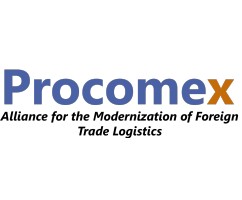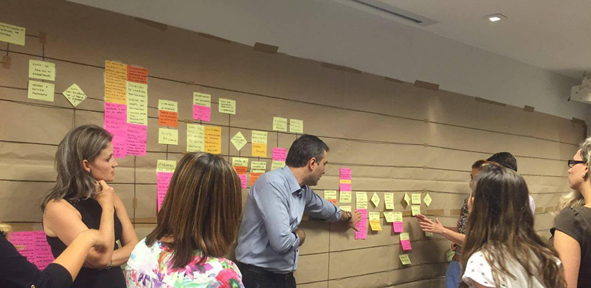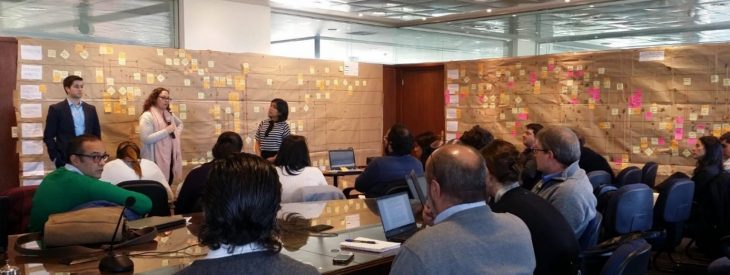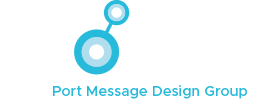
![]()


True collaboration is about making everyone feel that they are a participant and that they are making a difference, says John Mein, executive coordinator at PROCOMEX. He is reflecting on some extensive and successful work engaging all stakeholders in a PCS development process which actually had its roots in a Customs modernisation project.
PROCOMEX started out as an alliance of business associations in 2004, with the initial objective of modernising Brazil’s Customs processes. This work led to initiatives to improve procedures, systems and legislation around export and imports, forming the basis of the country’s new Single Window system. In the early stages, there were 57 business associations in the alliance – today the number is 125, a result of its remarkable achievements.
PROCOMEX has gained a deserved reputation as an organisation able to work with different stakeholders to deliver change and that led directly to a 42-month project to develop and implement a pilot Port Community System, focusing on the ports of Santos, Suape, Rio de Janeiro and Itajaí. PROCOMEX is part of the consortium, led by Palladium International Ltd, that won the bid to implement the Brazilian Trade Facilitation Project, funded by the United Kingdom’s Prosperity Fund.
Brazil has more than 50 ports but nearly a quarter of all the country’s seaborne cargo is handled through these four ports. Throughout the PCS project, PROCOMEX has focused strongly on the community and on getting both private and public sector involved in the decisions, says John.
“When we started working on the modernisation of Customs processes, we got people together around the table and everybody presented their issues and suggestions. We did a survey to consult associations and their members about the issues that needed work. We organised meetings to prioritise the issues and, based on that, we organised specific working groups,” he says. “Around the world, the public sector is often reluctant to work with the private sector – perhaps the real reason is that they don’t know how to.”

He admits that there was a touch of overoptimism at the start: “We thought we would modernise Brazil’s Customs in one year, but it actually took us a year to sit down with Customs and start talking! We realised it was necessary to create an organisation to give the effort sustainability, bring people along and enter into an MoU agreement, which we did with Customs in 2006.”
PROCOMEX’s strength is in bringing stakeholders together, organising the discussion, structuring the recommendations and presenting them so that people can visualise what is the problem and what is being recommended. The PCS project came into being when PROCOMEX was appointed to run a trade facilitation project with two pillars: to help SMEs to become international companies and to improve port processes and make Brazil more competitive, through the redesign of the processes and implementation of the pilot PCS.
“Our approach was not the system but the community,” says John. “We started by getting a certain consensus: what is a Port Community System? We were different to other countries in that Brazil had started with a trade Single Window, whereas the PCS as a concept was not widely understood. So our first effort was to get together the people at the policy/federal level – the secretary of ports, Customs, agriculture, navy, health, etc., recognising that the PCS would have to interact with existing national systems such as the national Single Window.”
Supported by Hamburg Port Consultants, another member of the consortium, the project then moved to each of the four ports, inviting all the stakeholders – port authorities and operators, freight forwarders, ship agents, Customs brokers, exporters/importers – to come to meetings and discuss governance and which process they wanted to prioritise for early development. For example, Santos, Suape and Rio de Janeiro chose entry and departure of vessels as top priority, while Itajaí opted for the import process.
“Based on what each of the communities chose as their priorities, we invited local stakeholders in that process to contribute to the design of an ‘As Is’ map.”
 The design of this map was literally done on a huge wall of paper. “Everyone would work on it and it would take several hours to work it out – everyone has a different view in how they handle processes. When you draw it, people can see the differences and also the things they have in common.”
The design of this map was literally done on a huge wall of paper. “Everyone would work on it and it would take several hours to work it out – everyone has a different view in how they handle processes. When you draw it, people can see the differences and also the things they have in common.”
The pandemic put a halt to such interactive work but PROCOMEX was undeterred, developing a methodology to complete the process maps virtually, using Zoom and ‘post-it’ type software. Although this is still a work in progress, and there are issues around funding cuts, the project is on course to deliver a national PCS in basic design, enhanced by specific services to suit the nature of each port.
“Our commitment to the Brazilian government is that we are going to make a PCS possible in Brazil and make the country more competitive,” says John. “Our work has provided the foundation for a PCS. All our mapping has been validated by public and private sector stakeholders, so it becomes the community’s. What we bring to the table isn’t knowledge about the process but the knowledge of how to get the stakeholders to design the process themselves.”
Sometimes during the project there were only ten people in a meeting – sometimes there were 120, says John. “It is about making everyone feel that they are a participant and that they are making a difference.”
Looking back at progress and lessons learned so far, he recalls some surprise when finding that the public sector could be more open to change than the private sector was. He also says: “In a project like this you need the community – and they are very willing to work with you if they feel you are making a difference. With our history, having worked effectively with Customs, people could see that things they didn’t believe could change can be changed. Credibility in terms of interacting with policy and developing real-life solutions was crucial.”
About IPCSA
IPCSA is an international association of Sea and Air Port Community System operators, sea and air port authorities and Single Window operators that is recognised across the globe for providing advice and guidance on the electronic exchange of information across borders and throughout the whole supply chain.
The association has members from across the globe who handle the exchange of information for Business to Business, Government to Business and Government to Government processes and facilitate the smooth cross-border movement of goods. This equates to the electronic exchange of information relating to more than 500 million TEU movements and 10 billion tonnes of cargo for air, sea and land transport – estimated to be in excess of 50 billion million exchanges every year.
IPCSA focuses on supporting and facilitating systems and innovations for Port Community System members and users, and promoting the use of international data standards in sea and air ports, at border crossings and via Single Window systems around the world. IPCSA is a recognised NGO with consultative status at UNECOSOC and IMO.
The PROTECT Group develops and supports the electronic reporting required by authorities for vessels entering or leaving a port or port area. It maintains and develops EDI through the PROTECT Guide. PROTECT is now fully integrated into IPCSA.
Contacts: Richard Morton, Secretary General, IPCSA
Tel: +44 7796334960
email: richard.morton@ipcsa.international
website: www.ipcsa.international
About the Procomex Alliance
The objectives of the Procomex Alliance are to assist in the development of modern and reliable border processes which:
- protect revenue generation;
- preserve the environment and
- cultural heritage; protect national security interests;
- guarantee the adequate collection and organization of information on trade;
- guarantee goods flow faster and more predictably;
- ensure that the treatment of traders is based on objective criteria.
Procomex core activities and strengths are:
- Development of partnerships between the public and private sectors;
- Demonstrated competence to develop alliances with interested organizations that directly influence the country’s foreign trade processes;
- Ability to synthesize diagnostic results and translate them into implementation plans for the modernization of processes;
- Leadership in multi-stakeholder work.
https://www.procomex.org.br/en/home-en



